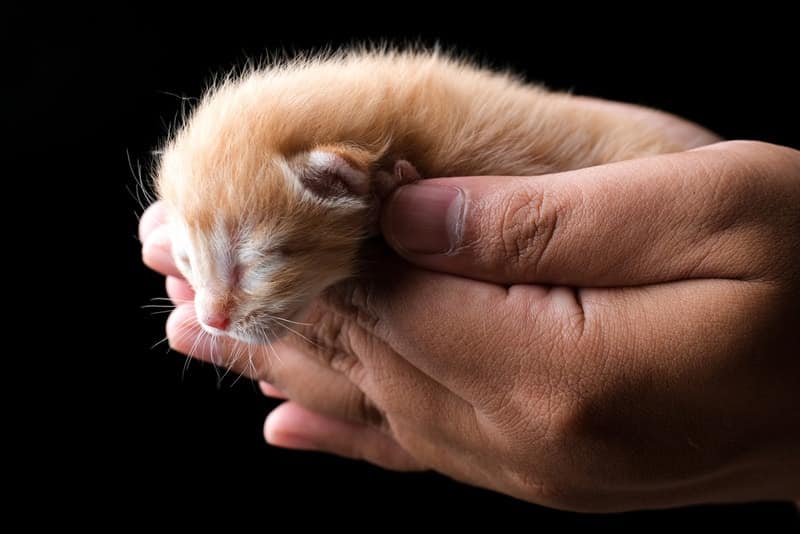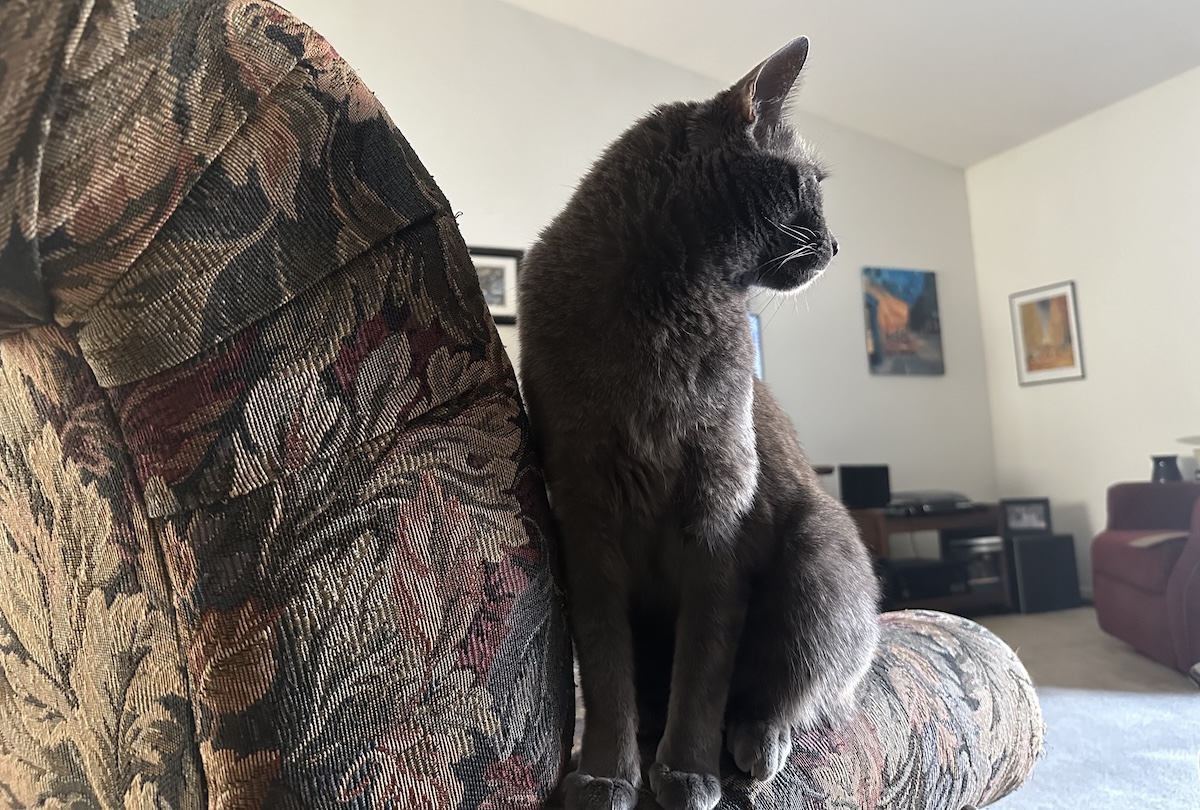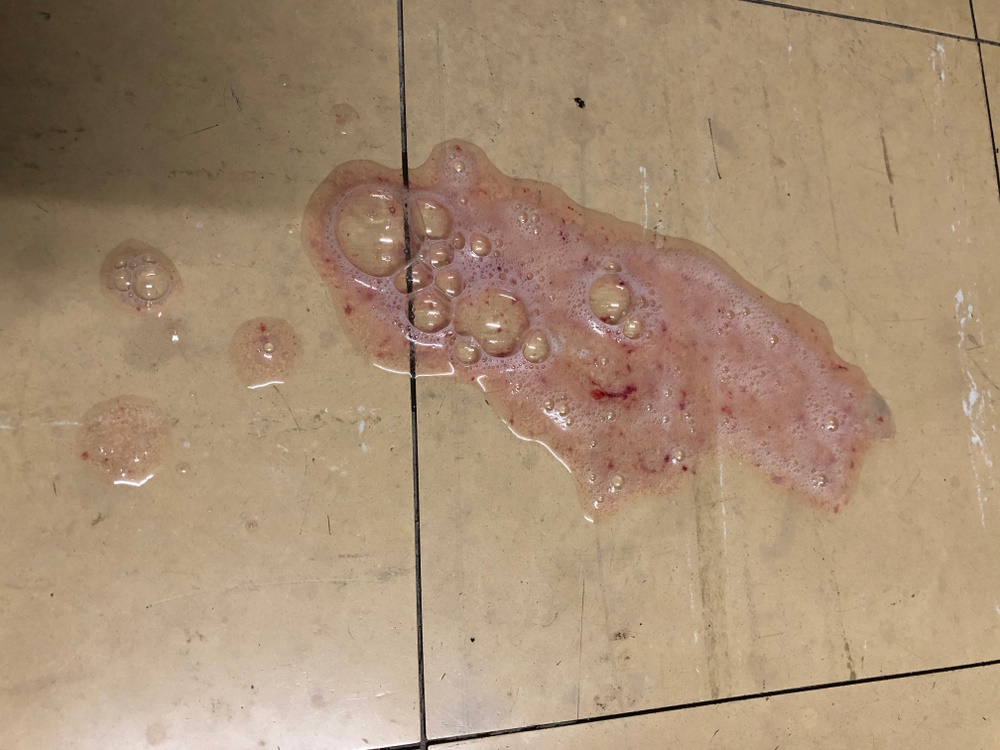The worry you feel when your cat is pregnant can be overwhelming. As a pet parent, you’re constantly watching the little momma and trying to make sure she’s ready when the time comes. Then you see the kittens. It’s no different than seeing a newborn baby. You want to hold, cuddle, and love them the instant you see them!
Unfortunately, that’s not always a good idea, and you’ll need to fight that urge. So, at what age can you touch newborn kittens? While it’s going to be difficult, unless there’s a medical issue or they are orphan kittens, you should minimize handling of the kittens until they are at least 2 weeks old. Between 2 and 7 weeks of age is the sensitive period for socialization toward humans, so this is the time when kittens should get used to human contact.
Let’s learn more about newborn kittens, why you shouldn’t hold them, and how you can help make things easier for the kittens and their mother.
Why You Shouldn’t Touch a Newborn Kitten
The first 2 weeks of a newborn kitten’s life are quite important. As most cat lovers know, kittens are born with their eyes and ear canals closed. A kitten’s developing systems are also delicate at this time. This means they are dependent on their mothers for everything.
Mothers will feed kittens every 2 to 3 hours, provide them with warmth, help them with passing urine and feces, and keep them clean. Understandably, mother cats are hyper-focused on their kittens. If an animal or person they don’t trust comes around, they will be on high alert. It’s even possible if the cat isn’t comfortable with the person or animal nearby, that they may unleash their motherly instincts and react to protect their kittens.
With all the important growth and bonding taking place during the first 2 weeks after a kitten is born, it’s clear to see why you should minimize contact. You may also find that not only will a mother react violently when someone tries to interact with one of her kittens, but it can stress her, and the last thing you want to do is cause any trouble to a busy mom.
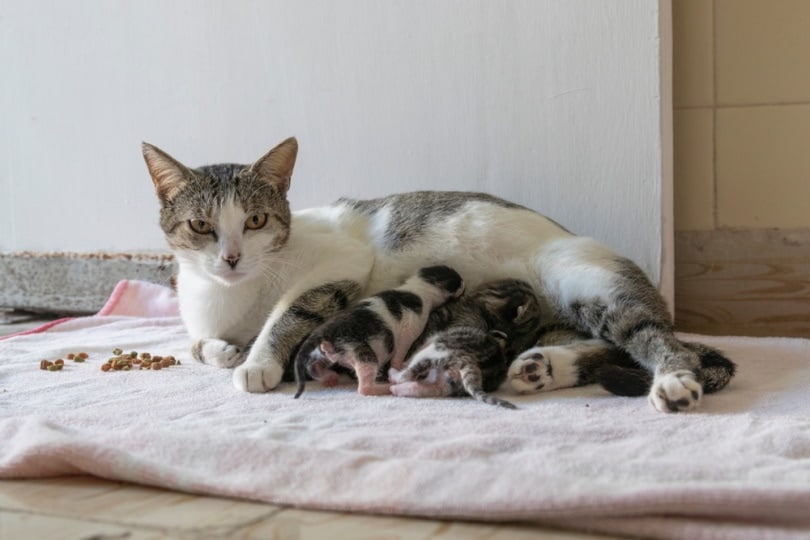
When Is It Safe to Interact with Newborn Kittens?
Veterinarians generally recommend that around the 2-week mark, when the eyes begin to open, is the best time to start interacting with newborn kittens. At this point, the socialization period toward humans starts. The mother is also ready to give the kittens some space. She knows they are now able to see a bit and wiggle around. If you and the mother cat have a strong bond, she may feel safe allowing you to watch over her kittens while she stretches her legs and takes a well-deserved breather.
You’ll also find that there are times when even the experts feel it’s okay to step in and handle newborn kittens before the 2 weeks is reached. Here are a few of them that you should be aware of and keep in mind.
- Aiding the mother if there is an issue during birth
- Helping a non-breathing kitten after birth
- Intervening when a kitten will not suckle
- Checking the weight of kittens to ensure they are growing properly
- Stepping in to help if you feel one of the kittens is suffering from a medical issue or isn’t gaining weight properly
- Helping the mother if she is having a medical emergency
- Removing the kittens if the mother endangers them in some way
- Moving the litter if you feel they are in a dangerous location
Tips for Touching Kittens When Necessary
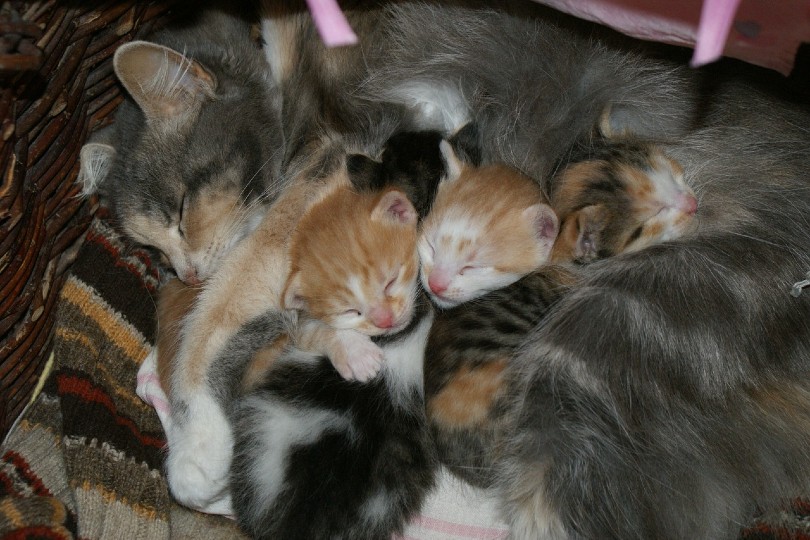
When you feel it’s time to check the kittens there are certain protocols you should follow. No matter the relationship between you and the mother cat, the most important thing is to ensure she can always see her kitten. By keeping the kitten as close as possible you will reduce the stress the new mother will experience.
Here are other guidelines to help make touching kittens safer.
- Kittens are susceptible to bacteria and infection so make sure your hands have been washed
- Position yourself near the mother so she can see the kitten
- Keep the kitten in an upright position with its belly down and supported by your hand
- Try to keep the kitten warm while you interact (use a water bottle if necessary)
- Handle kittens gently but make the interaction as short as you can
Orphaned Kittens
Unfortunately, there are situations when mother cats don’t make it through delivery or you find abandoned kittens in your area. While your veterinarian will help you decide what should be done with the kittens and whether you can care for them, moving them is the first step. As we’ve already mentioned, kittens can get cold easily. Make sure you have a safe transport device where you can keep the kittens warm while taking them to the veterinarian.
Once you reach the veterinarian, they will coach you on what to feed the orphaned kittens, how to help them potty, and other steps you’ll need to follow to rear them without a mother.
Final Thoughts
As you can see, newborn kittens are very vulnerable and should be left to the care of their mothers. While you may want to touch them all the time and interact with them non-stop, it’s best to minimize contact until the kittens are at least 2 weeks old and opening their eyes.
Of course, there are circumstances when you have no choice but to handle the kittens more often. When this is the case, always keep your hands clean, keep the kittens warm, and stay near the mother to avoid stress to her or the kittens. Before long, the new kittens will be up and about giving you a lot of fun, love, and adventure.
Featured Image Credit: Rembolle, Shutterstock

